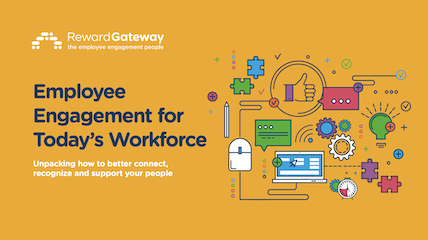My boss made a mistake on a project we were working on, and instead of owning his mistake, he said it was my fault. I sat through that meeting feeling shocked and disappointed. When we left the meeting, he told me, “You are a good sport.” I knew I needed to start planning my exit strategy. I loved my job but I couldn’t trust my boss. He would throw you under the bus in a heartbeat to make himself look good.
We all have our stories – the boss who stole our idea. The boss who made us stay late (without warning) and brings us to the brink of burnout.
These stories are the stuff of nightmares, at least they haunt my dreams as my passion is about how to make employees happy at work.
So how can you turn it around and be the boss of their dreams, instead of the one keeping them up at night planning their exit? Here are a few ideas to avoid being that nightmare boss and foster a positive working environment for your people:
1. Connect about life outside of work
 According to research shared with me from the team at Reward Gateway, 43% of employees say that a manager that cares about them is a “must have.” Sadly, I often hear managers say, “I don’t have the time,” or “I am too busy.” Building a connection with every employee takes time but the scary reality is, if you don't it can negatively affect productivity, engagement and loyalty. Allocate time to connect with your employees and show that you are interested in them as a person.
According to research shared with me from the team at Reward Gateway, 43% of employees say that a manager that cares about them is a “must have.” Sadly, I often hear managers say, “I don’t have the time,” or “I am too busy.” Building a connection with every employee takes time but the scary reality is, if you don't it can negatively affect productivity, engagement and loyalty. Allocate time to connect with your employees and show that you are interested in them as a person.
One-on-ones shouldn’t just be work status updates – don't be that "zombie" boss! Get to know your employees. Find out about their interests. When next you meet with them remember what you discussed – they will be appreciative of how attentive you were. How much time an employee wants to spend on this conversation will vary, but make sure you are in a position to understand what life outside of work is like for employees. It's also important to recognize boundaries and respect others. Emotional Intelligence is key.
2. Build in time to keep the team connected
 Let's face it. We are social beings and we want to feel included. 69% of U.S. employees agree that their employer should do more to keep the workforce connected. With workplace changes and a general shift into increased isolation, being intentional about connection is important. It's about building relationships. This can help reduce “ghost quitting” or “quiet quitting,” which is the latest workplace phenomenon.
Let's face it. We are social beings and we want to feel included. 69% of U.S. employees agree that their employer should do more to keep the workforce connected. With workplace changes and a general shift into increased isolation, being intentional about connection is important. It's about building relationships. This can help reduce “ghost quitting” or “quiet quitting,” which is the latest workplace phenomenon.
During team meetings, set aside time to check in with the team and create at least 2-3 opportunities per week for your team to connect in a personal way. (e.g. team lunches or celebrations). Keeping your team connected is really important – not only for the purposes of productivity but also when it comes down to retention and employee wellbeing.
3. Build awareness around benefits that may help your people
With all the challenges that employees face (personally and professionally), they need more help now than they ever did in the past. 50% of U.S. employees say the best way to support the cost of living or inflationary pressures outside of pay increases is to ensure that they are aware of the benefits available to them.
I have encountered many employees who don't properly use their benefits simply because of a lack of knowledge.
It’s important to communicate your available benefits regularly to employees. What benefits does the company have that they might use? We need to remind them of what is possible. Use key days or months to drive certain programs. Ask for feedback. What benefits are important to them? It is important to keep revisiting your benefits package and make sure it's current and relevant for your employees. A good benefits package shows that a company truly cares about its employees.

Discover how companies around the world are connecting, recognizing and supporting their workforces
4. Deliver clear expectations that you and your employee agree with
 35% of U.S. employees said they would leave a job for lack of clear, open communication. That’s why it’s important to keep multiple channels of communication open. I find that making yourself available for just a few minutes usually helps to get ahead of larger issues. Make sure to ask every team member to describe under what conditions they perform best and about any concerns they may have regarding their workflow.
35% of U.S. employees said they would leave a job for lack of clear, open communication. That’s why it’s important to keep multiple channels of communication open. I find that making yourself available for just a few minutes usually helps to get ahead of larger issues. Make sure to ask every team member to describe under what conditions they perform best and about any concerns they may have regarding their workflow.
These simple questions, such as, “What can I do to improve your work experience?” and “How can I best support you?” will let employees know you are genuinely interested in their growth and development. Listen and follow through. With teams feeling less connected, making sure expectations are clear makes it more likely that employees will be productive and feel successful on the tasks that are most important to the business.
5. Recognize and share the impact they bring
 Over 90% of employees say that recognition is important to them and 79% of employees have said that recognition makes them work harder. Sometimes as managers, we can get so caught up in the ultimate outcome, we ignore the process and steps employees have taken to get to the win. We lose out on many opportunities to engage with and encourage our team members if we ignore the small successes.
Over 90% of employees say that recognition is important to them and 79% of employees have said that recognition makes them work harder. Sometimes as managers, we can get so caught up in the ultimate outcome, we ignore the process and steps employees have taken to get to the win. We lose out on many opportunities to engage with and encourage our team members if we ignore the small successes.
In a recent report, Reward Gateway found that 50% of employees surveyed wanted their employer to increase their investment in reward and recognition. The answer? Please no more Tricks or Treats! Recognition needs to be authentic, timely and consistent. Those one-off moments of recognition – like employee of the month, annual performance reviews, tenure awards, etc. are not as effective. We need to be creative and continuously think of meaningful ways to recognize and appreciate our employees for their contributions.
6. Be vulnerable and admit your mistakes
 It's OK to remove the mask and be your authentic self. Employees will follow your lead. When a manager shares their mistakes or struggles, the team has a model for how to share and be supportive of each other. Keep conversations open by admitting when you don't have all the answers or were distracted by a family matter in the middle of the day and needed to step away from your computer.
It's OK to remove the mask and be your authentic self. Employees will follow your lead. When a manager shares their mistakes or struggles, the team has a model for how to share and be supportive of each other. Keep conversations open by admitting when you don't have all the answers or were distracted by a family matter in the middle of the day and needed to step away from your computer.
Additionally, don’t take yourself too seriously. Great leaders are strong but light-hearted. They can laugh at themselves and can see the humor in situations which helps to put everyone at ease. By being open and vulnerable you will be better able to engage with your staff. This builds stronger bonds in the workplace.
7. Take care of yourself
 It is nearly impossible for us to make the right decisions, guide and support our employees if we ourselves are burned out or stressed out. The coronavirus pandemic has placed extraordinary demands on us. Being a manager in these turbulent times can be very stressful. You don't want to be seen as a Jekyll and Hyde. For this reason, it is critical to carve out time in your schedule for yourself. Reflect on your purpose. What’s your "WHY"?
It is nearly impossible for us to make the right decisions, guide and support our employees if we ourselves are burned out or stressed out. The coronavirus pandemic has placed extraordinary demands on us. Being a manager in these turbulent times can be very stressful. You don't want to be seen as a Jekyll and Hyde. For this reason, it is critical to carve out time in your schedule for yourself. Reflect on your purpose. What’s your "WHY"?
What energizes and inspires you? Self-awareness is crucial. Take care of yourself so you will have the energy and enthusiasm to support your team. As we focus on taking care of our employees and their mental health, we need to take care of our mental health as well. This will sharpen your leadership acumen and help you to become a dream boss.

 Brigette Hyacinth
Brigette Hyacinth



